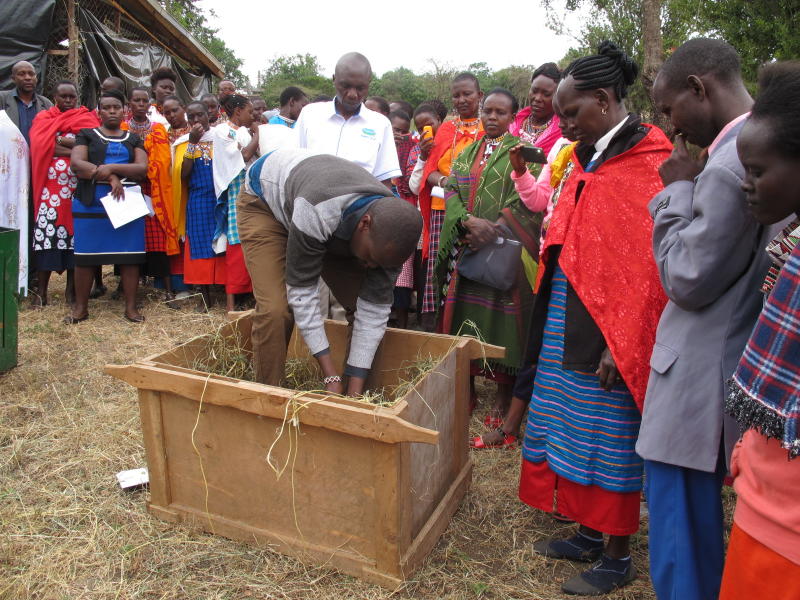×
The Standard e-Paper
Join Thousands Daily

It is noon and 50 Maasai women sit quietly inside an iron-roofed shed, keenly following demonstrations by Raphael Shololoi, a Livestock Production Assistant from Kajiado County on best practices.
“Before you start milking, make sure the cow is clean, especially the flanks, udder or the belly, because much of the dirt that might contaminate the milk comes from these areas,” explains Shololoi, during field visit organised by Brookside to empower the women group that supplies them milk in Kumpa area of Kajiado County.